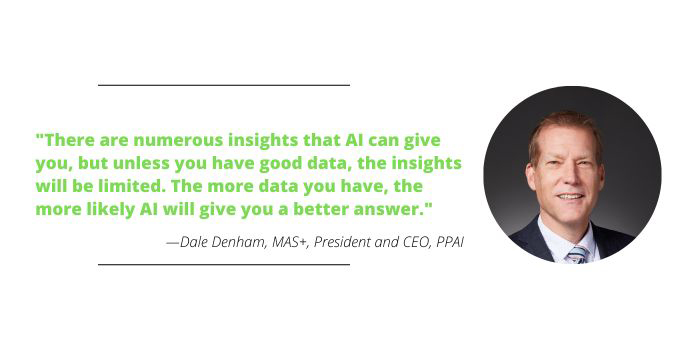The True Intelligence Behind AI

When it comes to artificial intelligence, you can blame the sci-fi movies for making our imaginations run wild. Some people are downright scared of AI taking over the world and enslaving the human race; other people have wildly exaggerated the utopia that these learning programs will help us create.
As with most things, the answer is surely somewhere in between. It’s true – there is some reason to fear the unknown that comes with the AI revolution we are just beginning to enter. Yet, most of us cannot prevent any of the significant harm that we imagine. We should be more concerned about what AI won’t do.
The hype surrounding AI is nearing its peak, as the news loves to feed on both our fear and our desire to focus on something new. This creates excitement that leads to inflated expectations, quickly followed by disappointment. My suggestion for avoiding the “Trough of Disillusionment” and enjoying the benefits of AI without setting yourself up for disappointment? Focus on what you can get out of AI today, while also preparing yourself for the future.
The tools already available are fascinating, but very few are operational yet that are going to dramatically change your promotional products business. Some can make your business better overall as software products build in functionality, such as SAGE adding AI to the Idea Wizard. Some AI functionality will make you more efficient by automating simple tasks, like writing job descriptions or improving artwork processes. Microsoft will soon launch Copilot, which will likely create some efficiencies for most users of Office.
But the most impactful improvements are yet to come, as new tools become available to solve problems specific to your business. The most value from AI will be unlocked in the years ahead by those who are prepared to take advantage of the AI tools that are yet to be developed.
The secret to unlocking the value of artificial intelligence is data. AI needs quality data, and businesses of every size need to prioritize data management if you want results beyond the tasks that are available today. You can use AI without your own data and still have gains, but you won’t have an advantage. AI with general data is useful, but AI with your own structured data is powerful.
Data is the true intelligence behind AI.

There are numerous insights that AI can give you, but unless you have good data, the insights will be limited. The more data you have, the more likely AI will give you a better answer. If you only have one year of data, your AI potential is more limited than if you have 10 years of data. This mirrors the typical learning curve with humans, except AI doesn’t forget like we humans do.
Further, the more your data is structured, the more context you are giving AI to understand how to use the data. The data you have in your order management system is likely to have some structure that will help AI. However, the way most distributors create orders will limit the ability to use standard AI tools, and unfortunately these old-fashioned practices create a lot of other challenges for the industry today.
Consider that the typical line on a purchase order description contains item details such as the color of the item, the size(s) and often imprint information, including imprint color. This creates challenges for suppliers to use automation to bring this information into their system and for distributors to be able to run basic reports. More importantly, this lack of context for data will make it more difficult for AI to know with certainty whether a color is the product or the imprint.
There is so much data we are losing because we are not capturing it. AI may figure this out at some point, but the more we provide context, the sooner and more effectively we can use AI.
Many salespeople make and receive calls without logging the call into a CRM. Even when they do, the reason for the call may be poorly cataloged. AI may understand a call was made, but without logging the reason along with the result of the call, the AI will be at a disadvantage. If salespeople log the reason as well as the outcome of calls today, the AI can help answer questions, such as which customers are more costly, to help you understand your true costs or identify the clients you need to provide better service to in advance.
The future power of AI will be unlocked when your data can be fed into AI tools and leveraged by you. Until then, leverage the tools available to you now while improving your approach to data management.
Denham is the president and CEO at PPAI.

